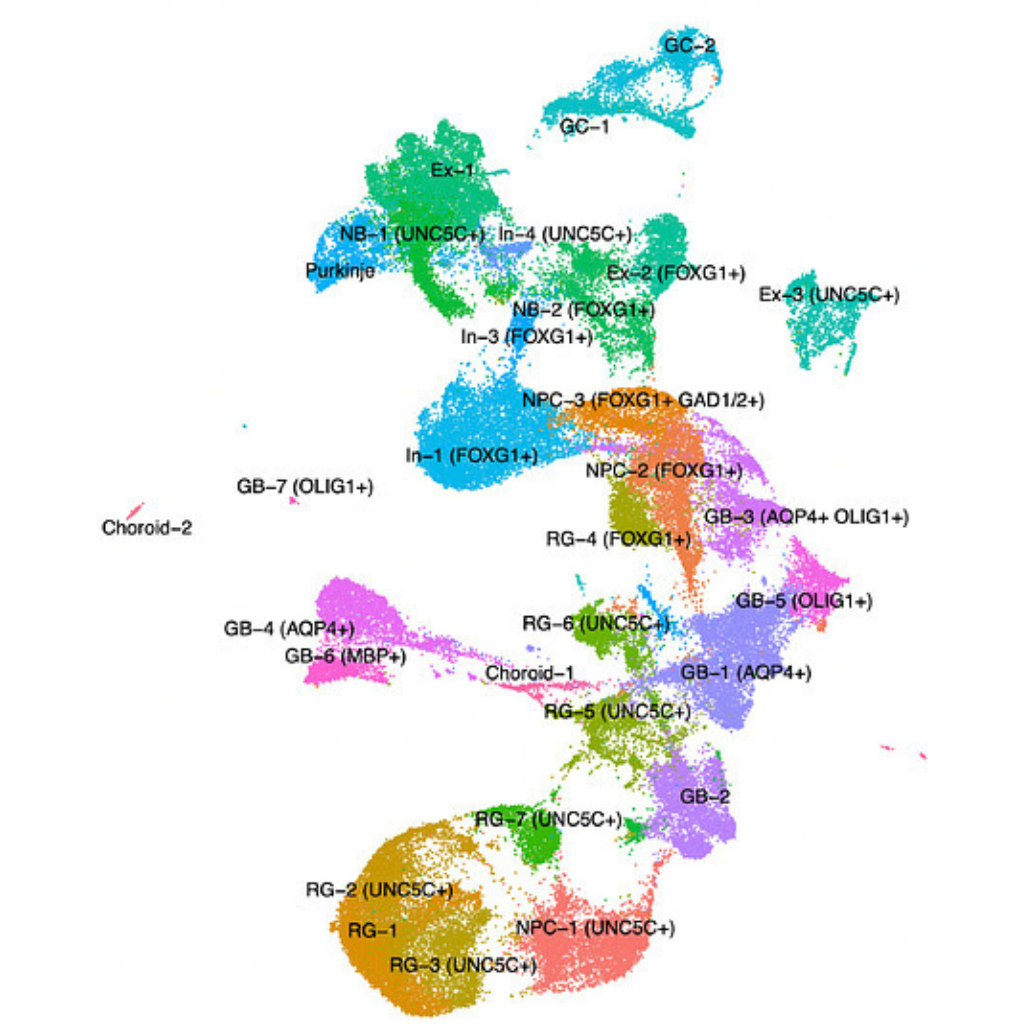Project 8p initiated a collaboration with Dr Francesca Telese at the UCSD to tackle that thorny question. Dr Yanning Zuo, a postdoctoral fellow in the Telese lab, joined the 8p Research Roundtable last month to present updates on a comprehensive bioinformatics analysis of a massive, first-of-its-kind, single-cell RNA sequencing (scRNASeq) experiment on a 8p family trio of cortical brain organoids.
The organoids were grown for up to nine months in culture by brain organoid pioneer Dr. Alysson Muotri, whose lab is also located at UCSD. Dr. Muotri’s 8p Research Roundtable talk from January 2023 can be viewed here. Recall that his lab performed a preliminary analysis on the 8p brain organoid scRNASeq dataset that revealed a striking result that comes with a
”single-proband, single-clone” proviso.
A peculiar population of Reelin-expressing neurons was present in the 8p hero brain organoids but not in brain organoids derived from either parent. Are these the fabled Cajal-Retzius neurons that are thought to exclusively express Reelin? Or are they something else entirely?






